UBA presented the results of the implementation of the project "The trial monitoring in war crimes cases"
On Wednesday, October 25, 2023 the Ukrainian Bar Association presented the results of the project "The trial monitoring in war crimes cases". The UBA implemented this project in collaboration with the USAID Human Rights in Action Program, implemented by the Ukrainian Helsinki Union for Human Rights.
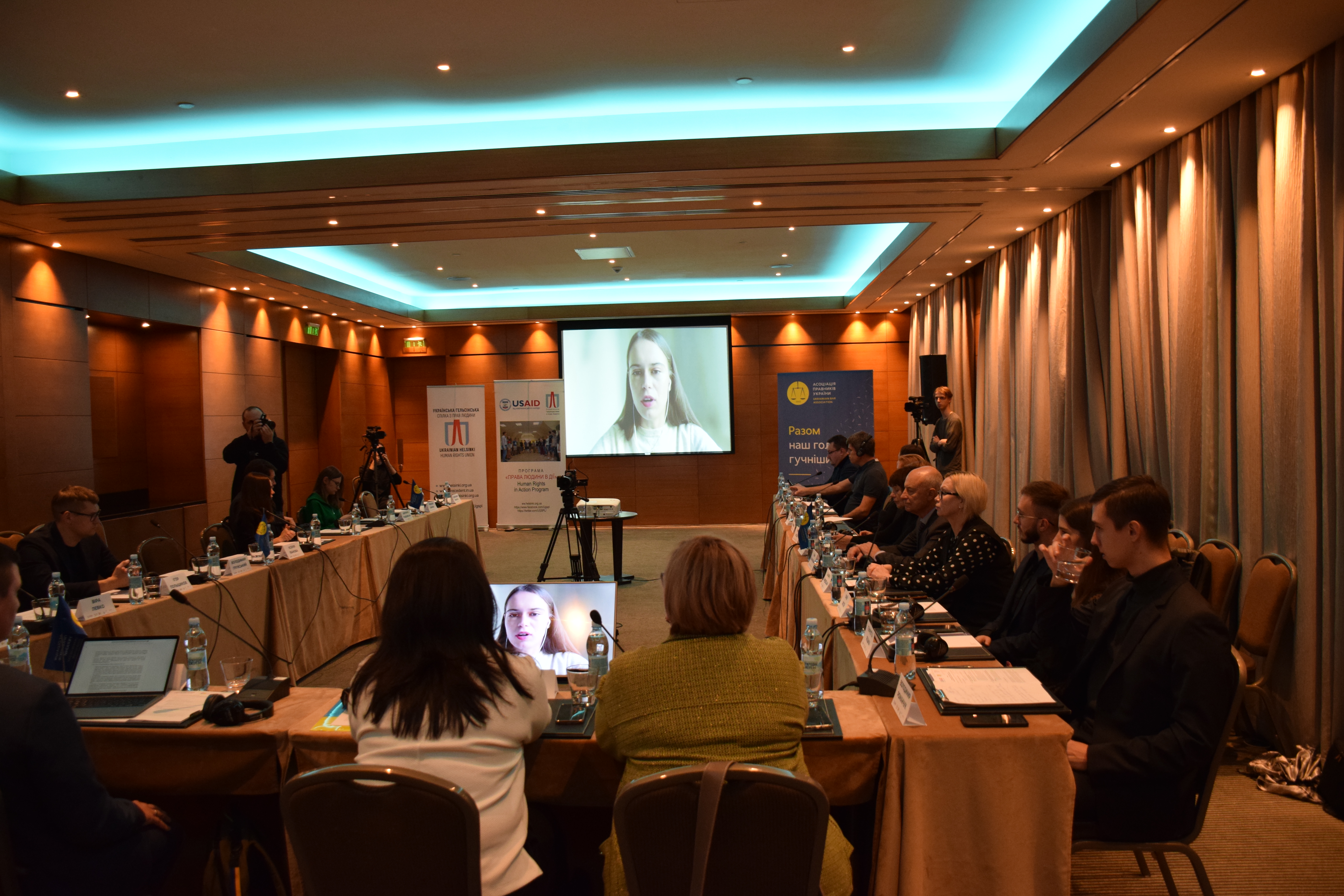
The event was opened by Mykola Stetsenko, UBA President, Managing Partner at AVELLUM. In his welcome speech, he noted that with the onset of the full-scale Russian invasion, the national justice system faced the need to rapidly and effectively handle a large number of cases related to war crimes and crimes against humanity in Ukraine. Despite this, the national justice system must demonstrate that it is independent and highly professional and that Ukraine remains committed to democratic values, emphasized Mr. Stetsenko.
The UBA President explained that the project involves conducting pilot monitoring of judicial proceedings and court decisions in cases of war crimes with the aim to:
- analyze the new judicial practice in Ukraine related to the consideration of cases of war crimes, as well as the role of the prosecutor's office and the quality of defense for suspects, accused, and victims;
- form an understanding of how such judicial practice corresponds to international standards, including human rights;
- in case of identifying any deficiencies, draw the attention of the judicial community to them and propose possible ways to address them.
Mykola Stetsenko informed the audience that the trial monitoring took place from July to October 2023, inclusive, in the courts of Kyiv City, Kyiv region, Kharkiv, Chernihiv, Zaporizhzhia, Kherson, Odesa, Sumy, and Dnipropetrovsk regions.
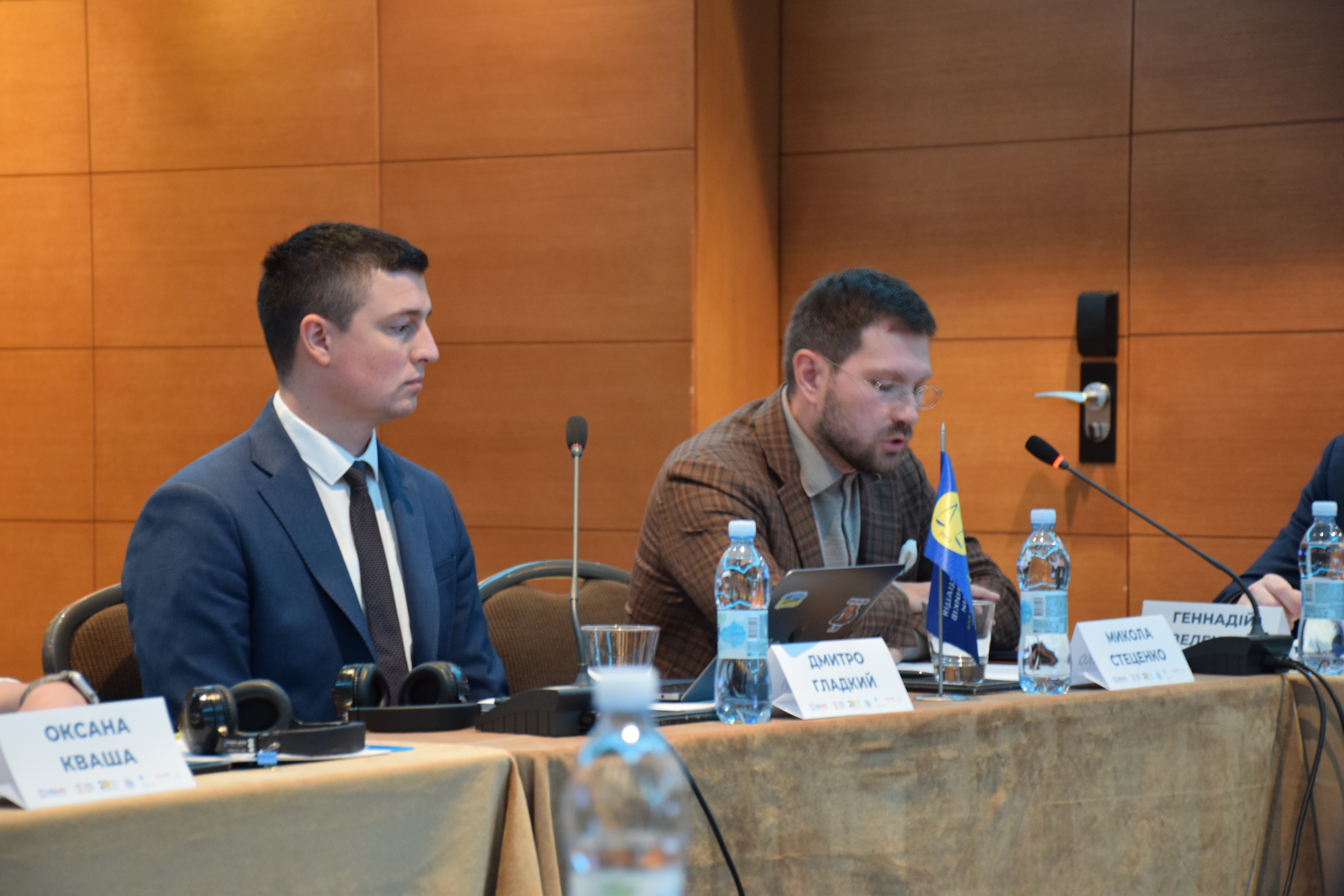
As part of the project, sentences in cases of war crimes from February 2022 to October 2023 were also analyzed for their reasoning, justification, proper qualification of unlawful actions, and compliance with the requirements of Ukrainian criminal procedural law for the consideration of criminal cases. To complete the investigation, Ukrainian legislation was also analyzed for its compliance with international law.
The UBA President stated that for the monitoring, the Association assembled a team consisting of two chief national experts in international law and human rights and seven monitors who are lawyers with experience in the field of law. The monitors attended court hearings and analyzed the court decisions according to a pre-approved questionnaire. The methodology and questionnaire for monitoring were prepared by the UBA in collaboration with experts from the Human Rights Institute of the International Bar Association (IBAHRI) and the Asser Institute.
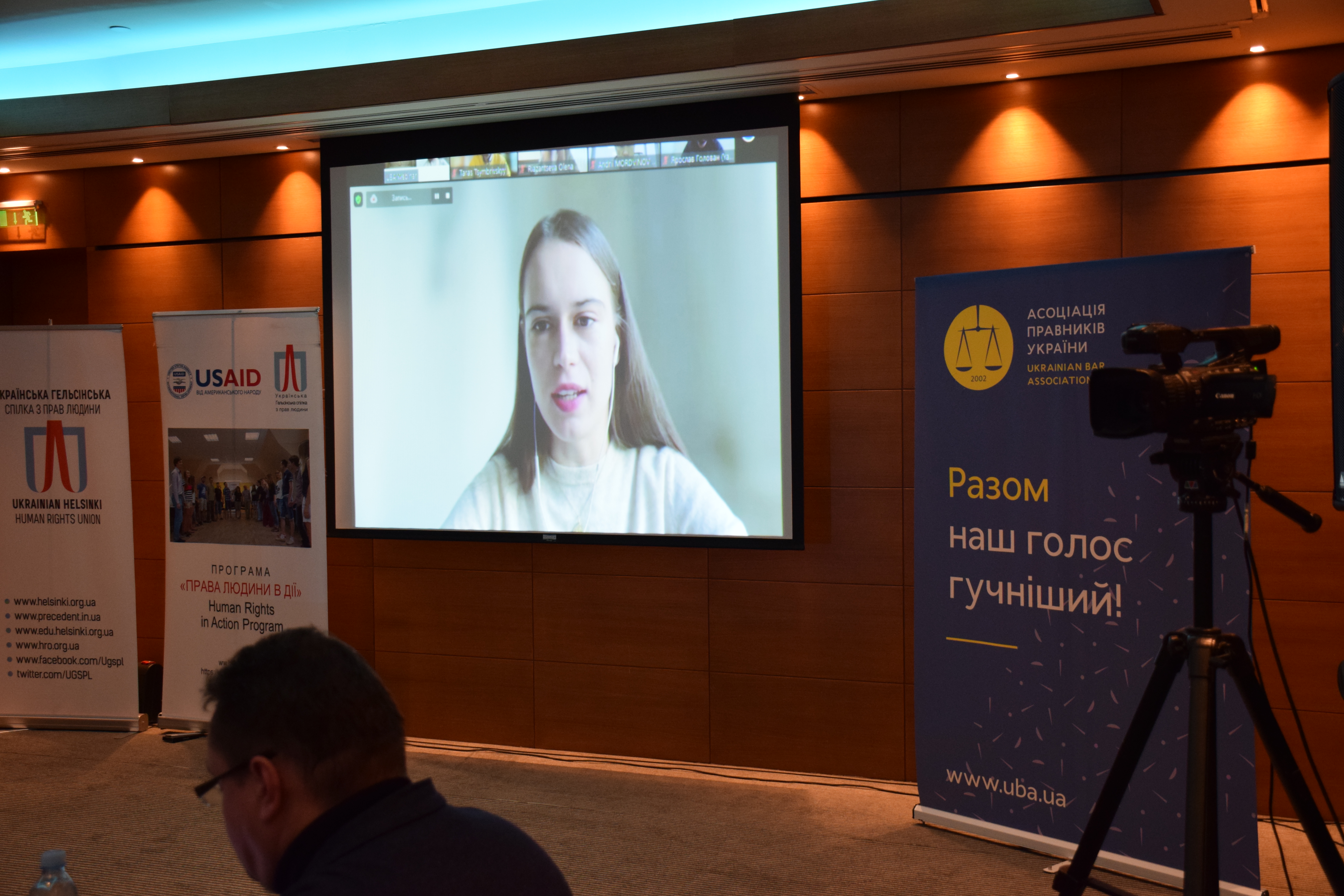
Zlata Symonenko, the national expert of the project " The trial monitoring in war crimes cases," presented the results of the project. She reported that the number of criminal cases on war crimes (qualified under Article 438 of the Criminal Code of Ukraine, "Violations of the laws and customs of war") heard in the district courts of the monitored cities and regions was:
- Kyiv City and Kyiv region — 58;
(the number of cases in the following cities and regions is approximate)
- Kharkiv City and Kharkiv region — 11;
- Dnipro City and Dnipropetrovsk region — 8;
- Odesa City — 5;
- Chernihiv City and Chernihiv region — 17;
- Kherson City and Kherson region — 7;
- Zaporizhzhia and Zaporizhzhia region — 3.
In Kyiv region, the most overloaded in terms of the number of criminal cases on war crimes is Irpin City Court, where at least 19 cases are heard, and at least 26 court hearings took place in three months. The second most loaded courts in Kyiv region are Brovary and Borodianka courts.
Almost all criminal cases are heard in absentia. Only two defendants are present at hearings in Kyiv region, and one in Dnipropetrovsk region.
Three criminal cases on war crimes are heard in closed session: two in Kyiv region and one in Zaporizhzhia.
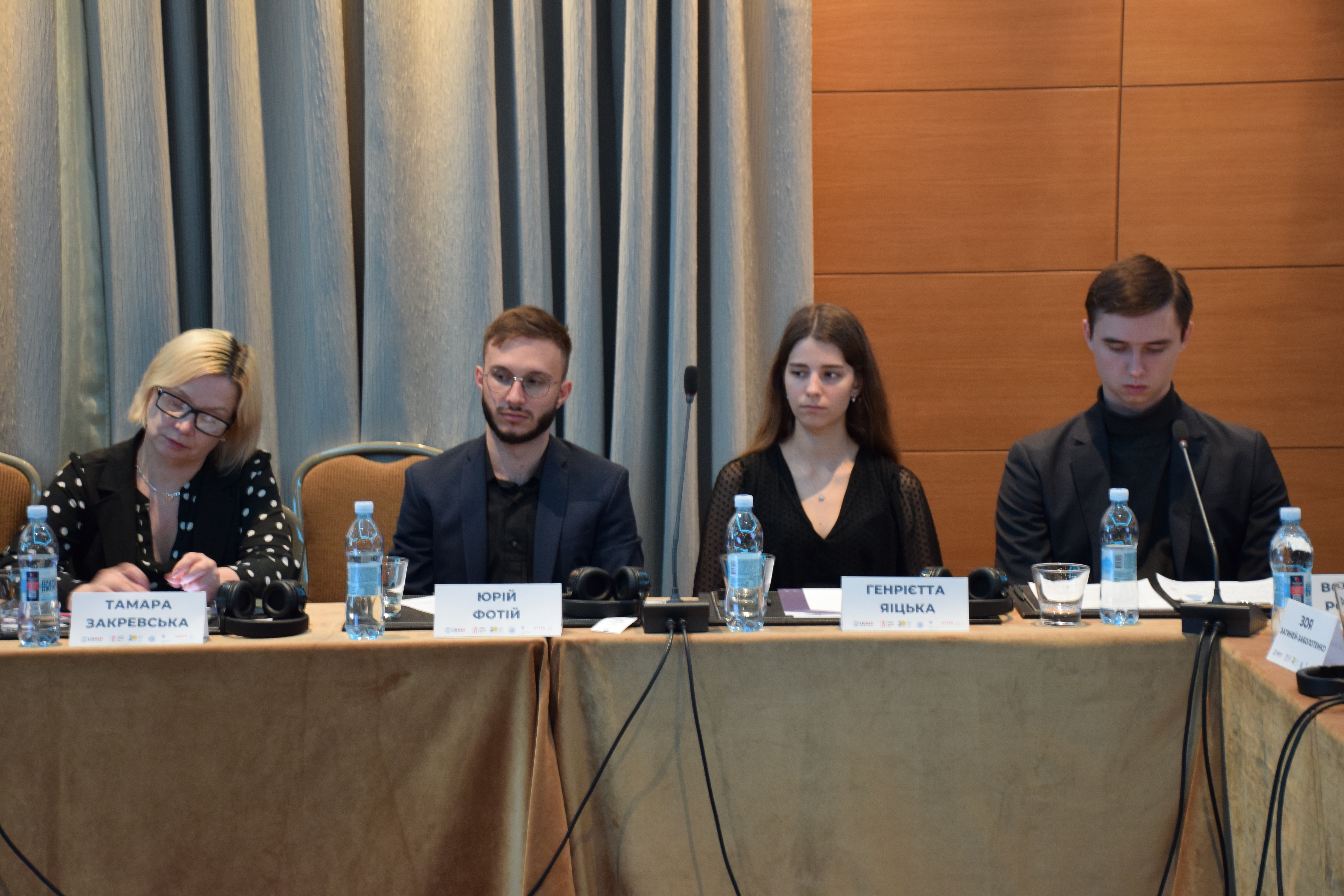
Zlata Symonenko mentioned that the monitors of the project mostly had unhindered access to court hearings, although there were cases of denial. The denial was usually justified by the decision of the presiding judge or the state of martial law, under which the presence of outsiders at hearings is supposedly prohibited.
The expert also noted cases of hearings being postponed due to the workload of judges who were supposed to be at hearings in other cases at that time or due to the absence of defense counsel, including without valid reasons.
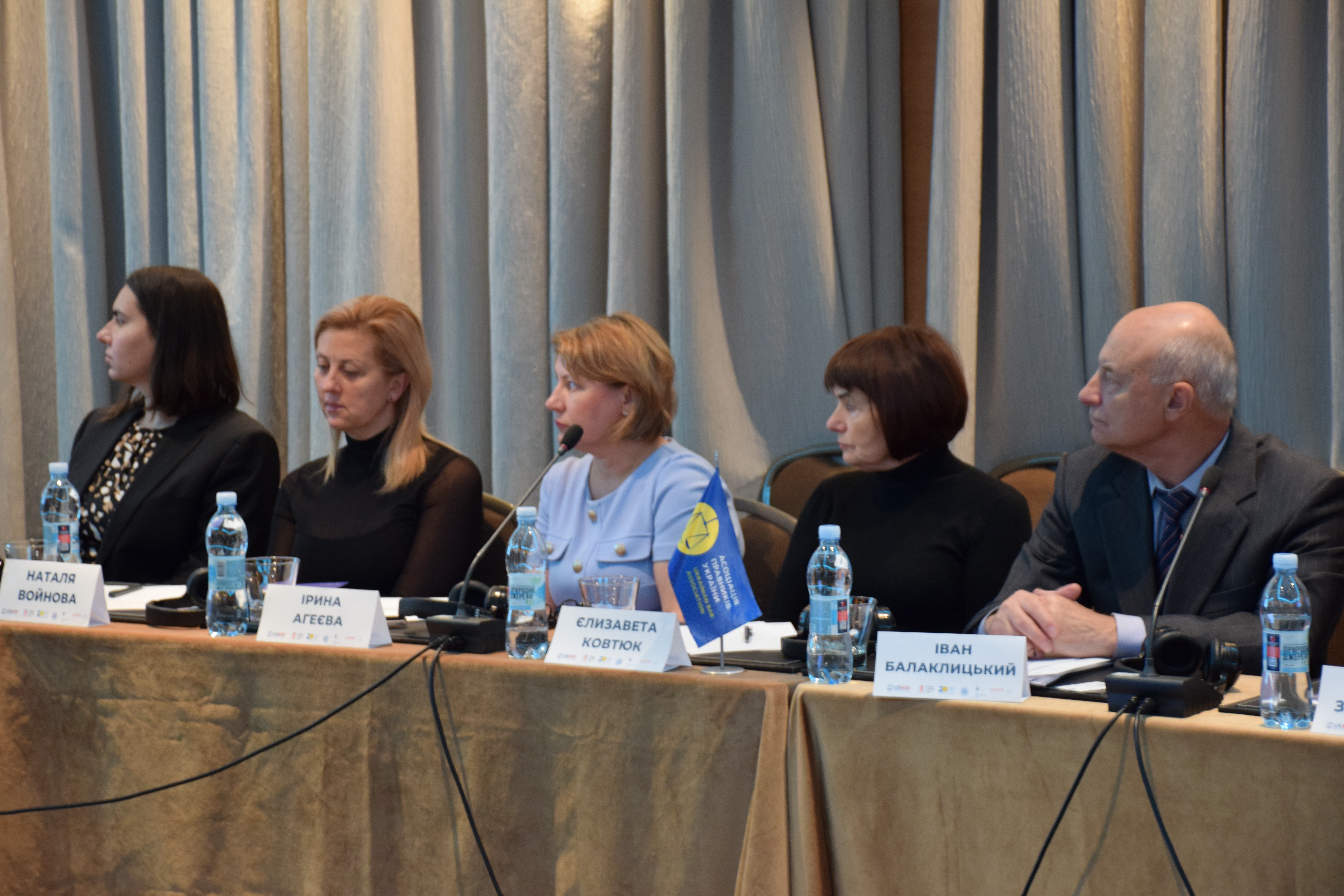
Based on the conducted monitoring of judicial proceedings in cases of war crimes, the following conclusions can be drawn:
- There is legal uncertainty in Ukrainian legislation regarding the list of war crimes.
- There is difficulty in establishing the elements of a crime under Article 438 of the Criminal Code of Ukraine due to the presence of a blanket form and one of the forms of actions as "other violations of the laws and customs of war."
- There are no guarantees of safety for participants in criminal proceedings; there is difficulty in documenting crimes for security reasons.
- The right to defense is not fully ensured.
- The procedure for notifying participants in criminal proceedings of court hearings is complicated.
- There is no unified approach to involving external monitors in the consideration of court cases.
Dmytro Gladky, an expert of the project "The trial monitoring in war crimes cases," presented the audience with the results of the analysis of court verdicts in this category of cases. He noted that the court decisions were analyzed without access to the materials of the criminal case. Additionally, there was no access to decisions containing information classified as state secrets. Access to court decisions was obtained through open sources.
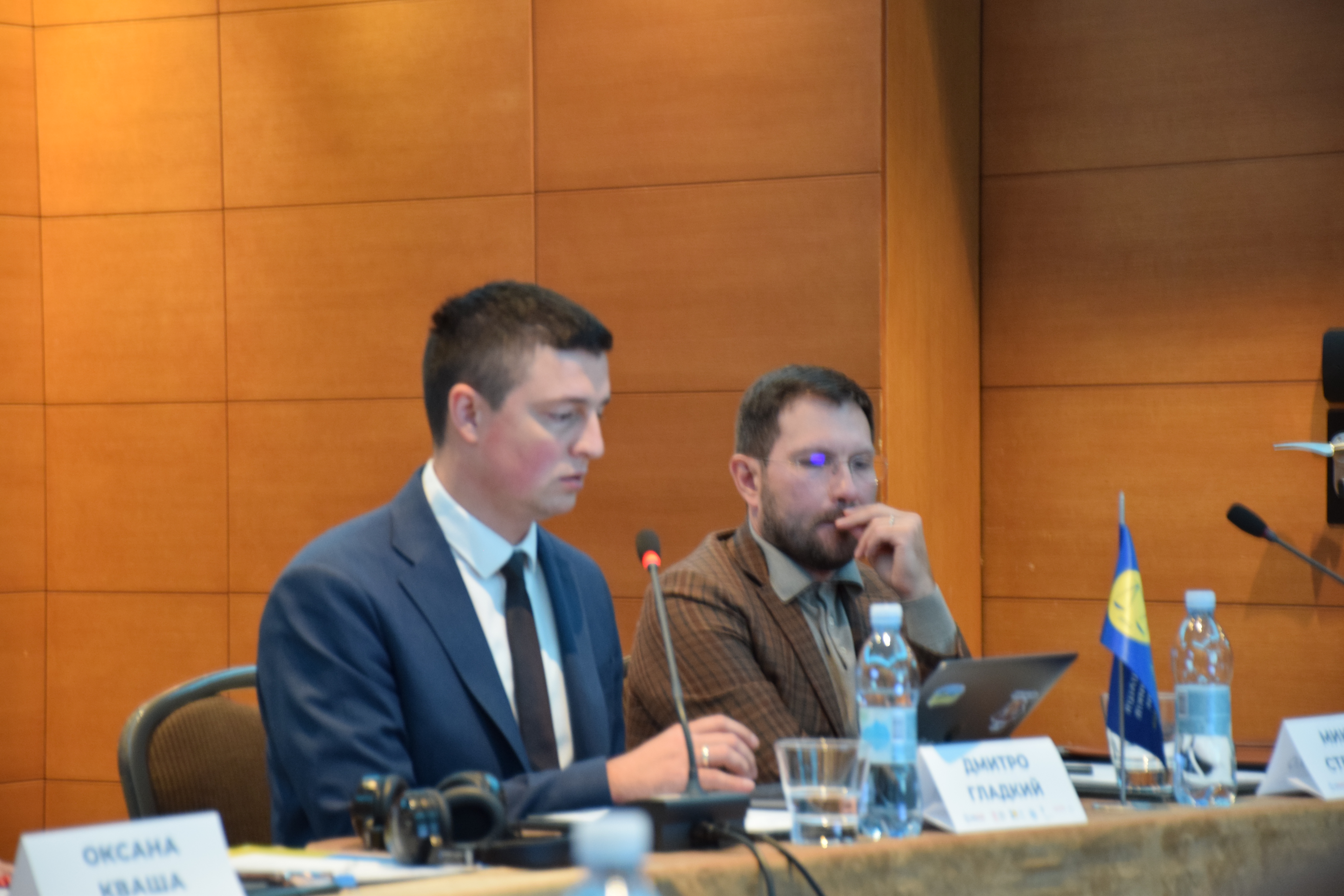
Mr. Gladky reported that a total of 36 verdicts were analyzed. The analysis did not cover verdicts, the text of which is classified, and verdicts in cases where charges were brought before the start of the full-scale invasion.

Oksana Kvasha, an expert of the project "The trial monitoring in war crimes cases," scientific secretary of the V.M. Koretsky Institute of State and Law of the National Academy of Sciences of Ukraine, Doctor of Law, and Professor, also presented her analysis of court decisions. She emphasized that in her analysis, she focused on legislation and how it is applied in the case of Article 438 of the Criminal Code of Ukraine.
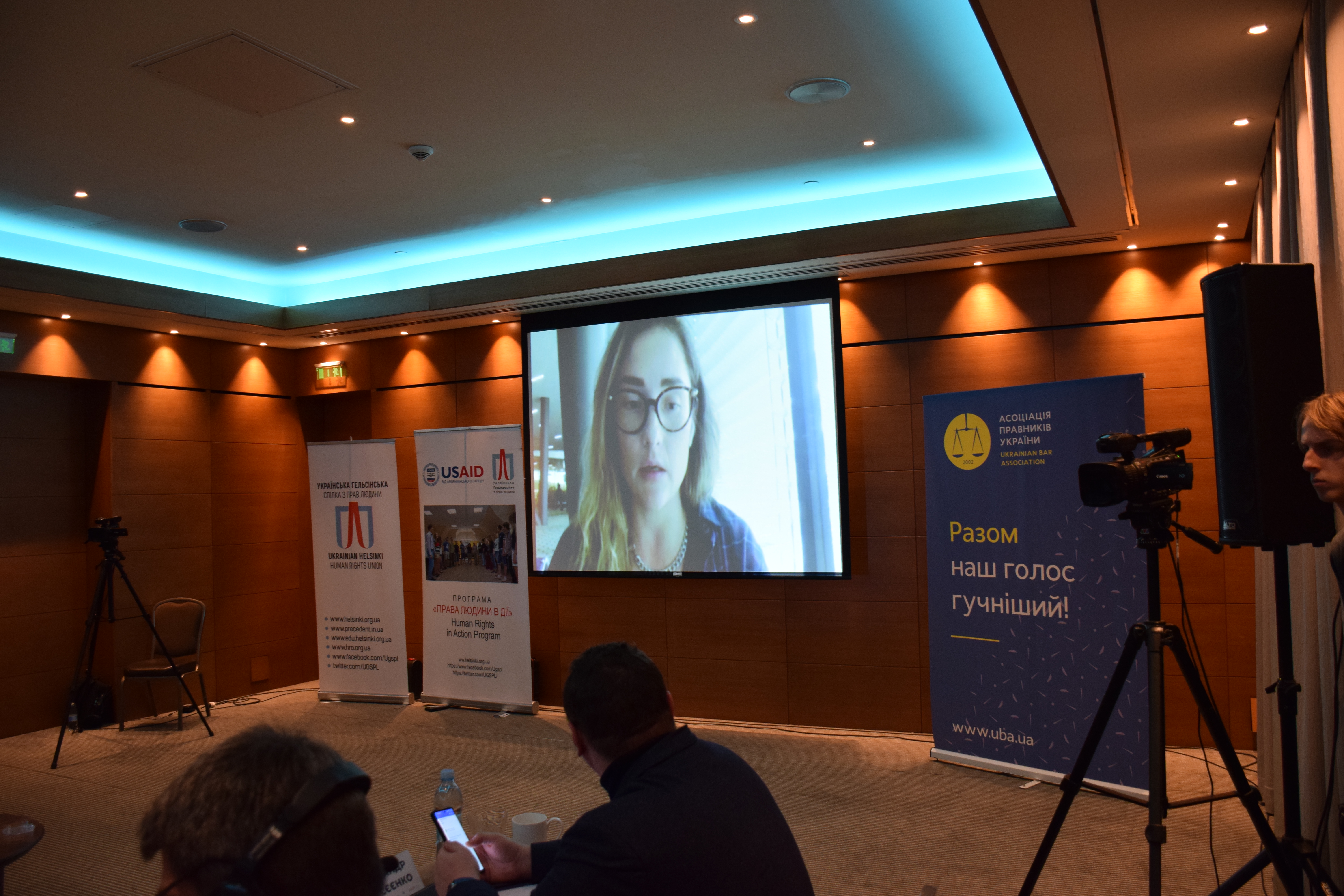
After the presentation of the project's implementation results, a roundtable discussion took place, moderated by Inna Liniova, UBA International Operations Advisor. The discussion involved the following participants:
- Hennadii Zelenov, Head of the Department of Analytical Support for Cassation Courts and the Grand Chamber of the Supreme Court in the Department of Analytical and Legal Work of the Secretariat of the Supreme Court of Ukraine;
- Dr. Mark Ellis, Executive Director of the International Bar Association (IBA);
- Volodymyr Romanchuk, a monitor of the project "The trial monitoring in war crimes cases" in Kyiv City and Kyiv region;
- Olena Ryazantseva, a monitor of the project "The trial monitoring in war crimes cases" in Kharkiv City and Kharkiv region;
- Zoya Zahiney-Zabolotenko, representative of the Supreme Court of Ukraine;
- Oleksandr Kukharuk, prosecutor of the Kyiv Regional Prosecutor's Office;
- Yelyzaveta Kovtiuk, representative of the National School of Judges of Ukraine;
- Victoria Kerr, representative of the Asser Institute, Netherlands;
- Semen Yatsenko, lawyer.

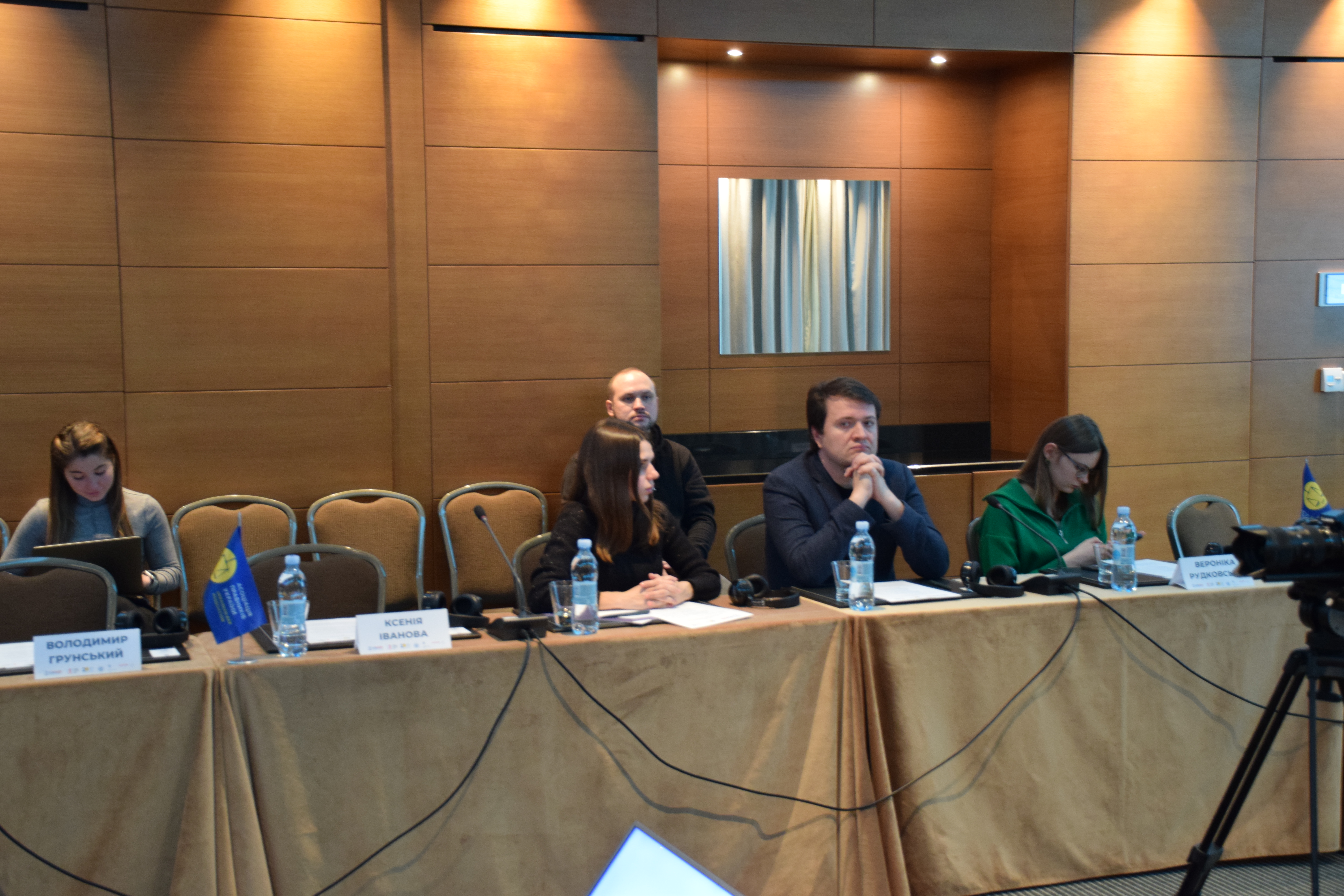
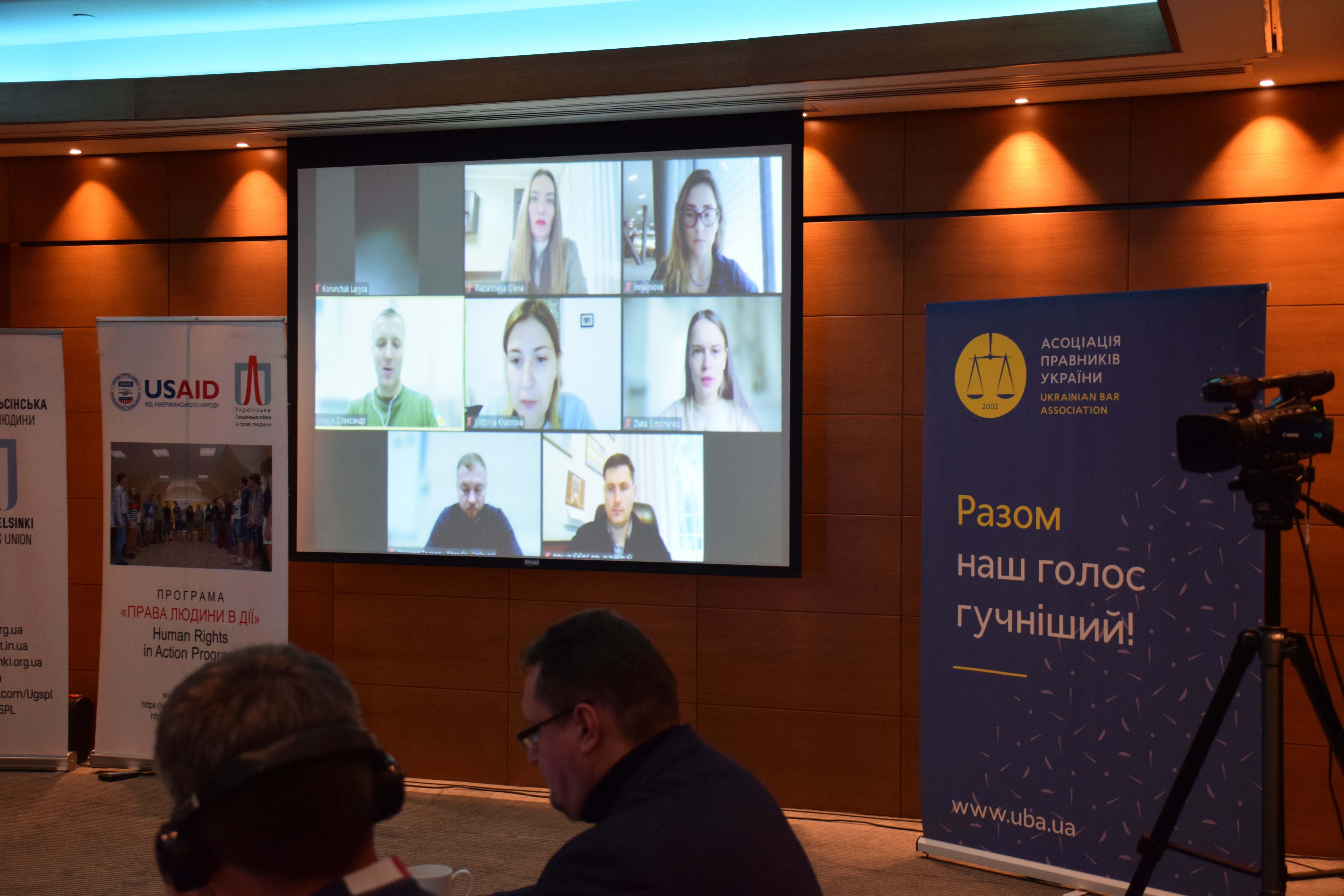
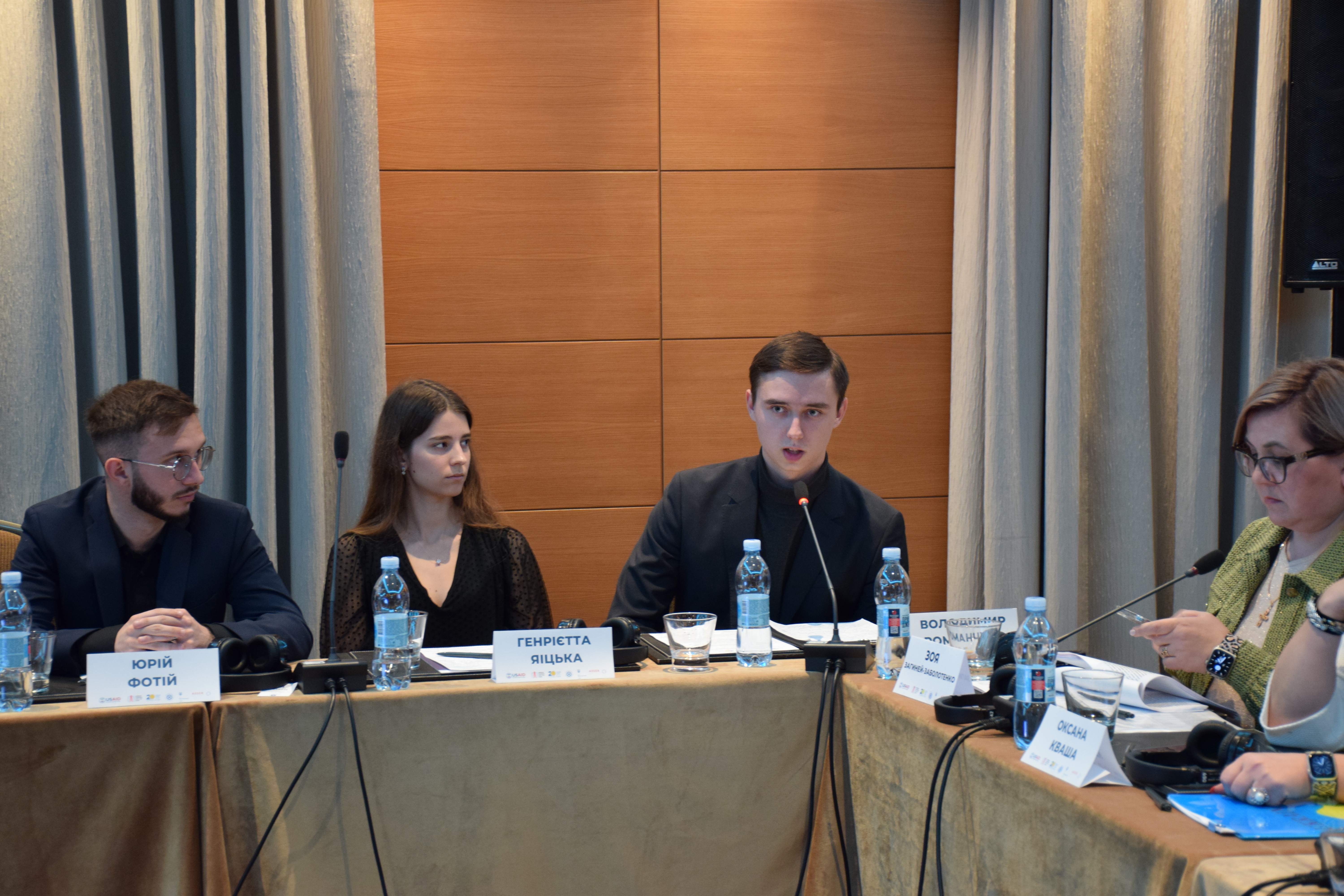

The Ukrainian Bar Association expresses gratitude to everyone who participated in the discussion of the results of the project "The trial monitoring in war crimes cases" for their comments, observations, and suggestions.
This publication is made possible by the generous support of the American people through the United States Agency for International Development (USAID) in the framework of the Human Rights in Action Program implemented by the Ukrainian Helsinki Human Rights Union.
Opinions, conclusions and recommendations presented in this publication do not necessarily reflect the views of the USAID or the United States Government. The contents are the responsibility of the authors and UHHRU.
The American people, through the USAID, have provided economic and humanitarian assistance worldwide for 55 years. In Ukraine, USAID’s assistance focuses on three areas: Health and Social Transition, Economic Growth and Democracy and Governance. USAID has provided 1.8 bln. technical and humanitarian assistance to Ukraine since 1992.
For additional information about USAID programs in Ukraine, please visit our website: https://www.usaid.gov/ukraine or our Facebook page at https://www.facebook.com/USAIDUkraine.
